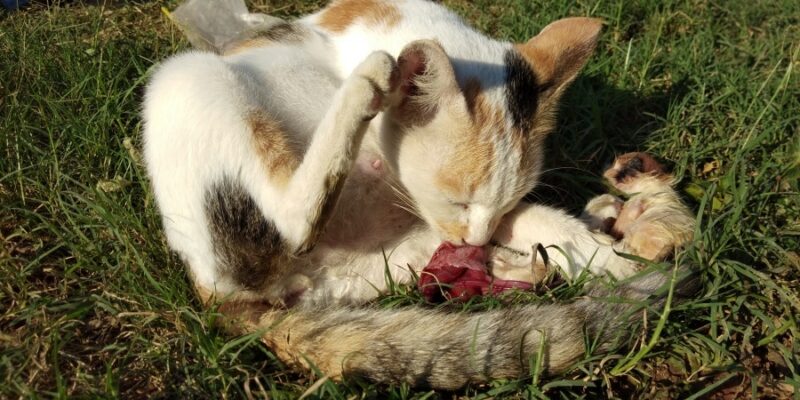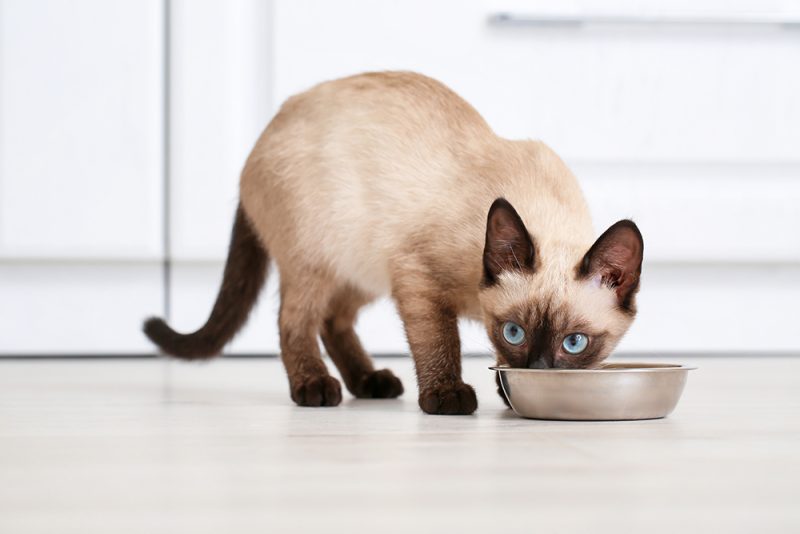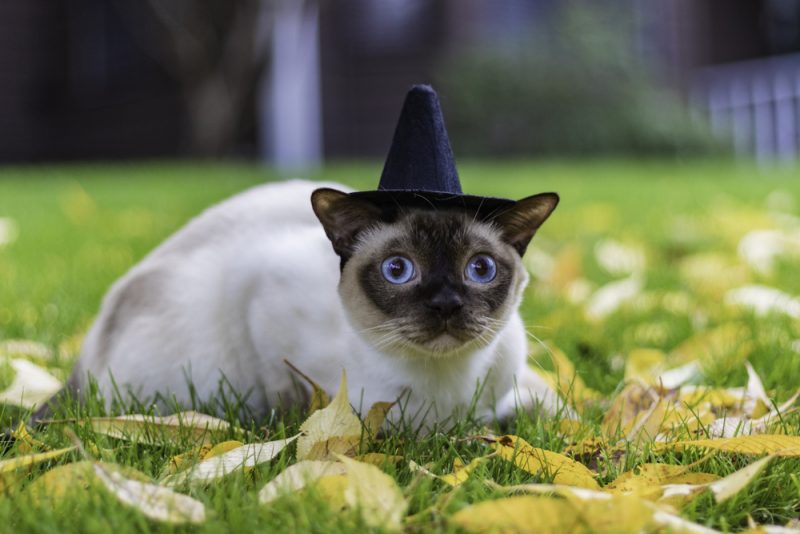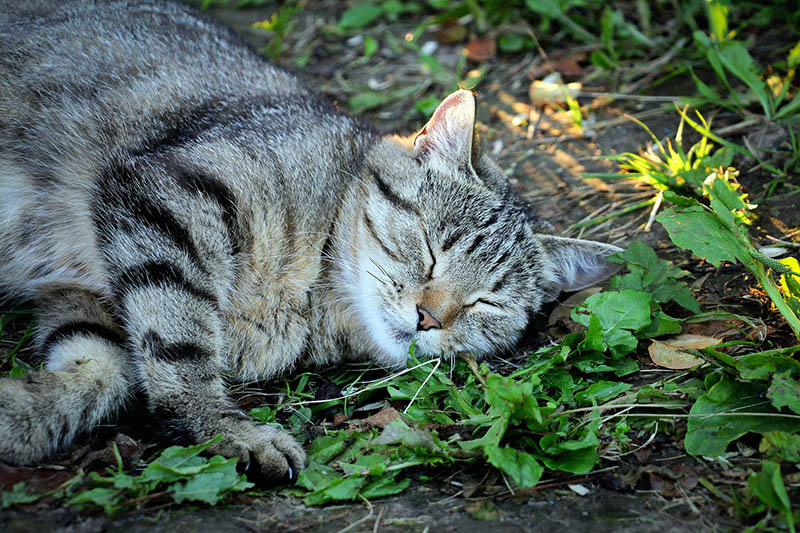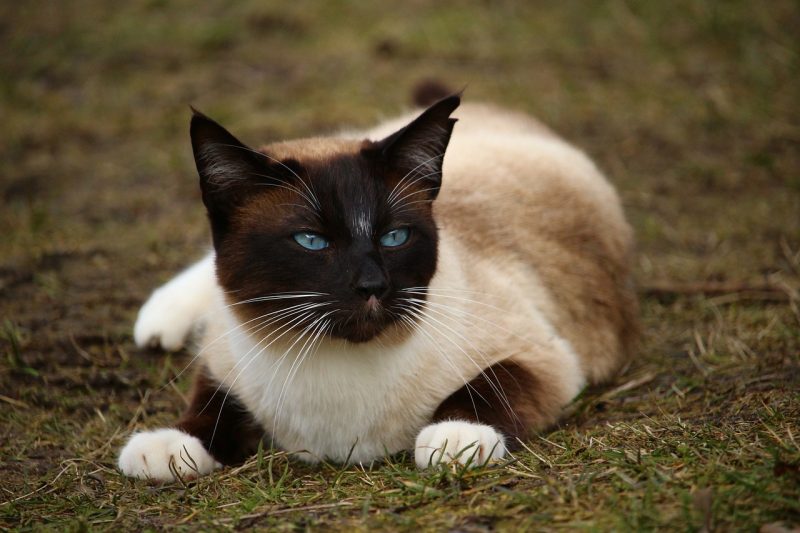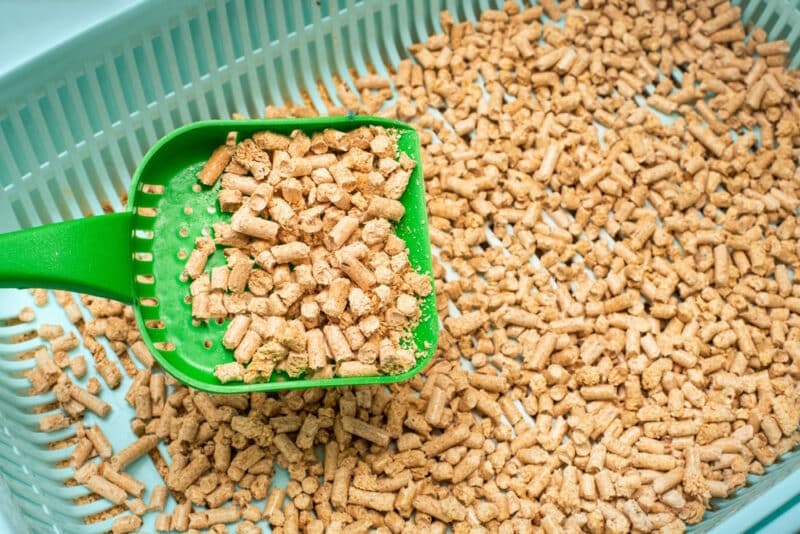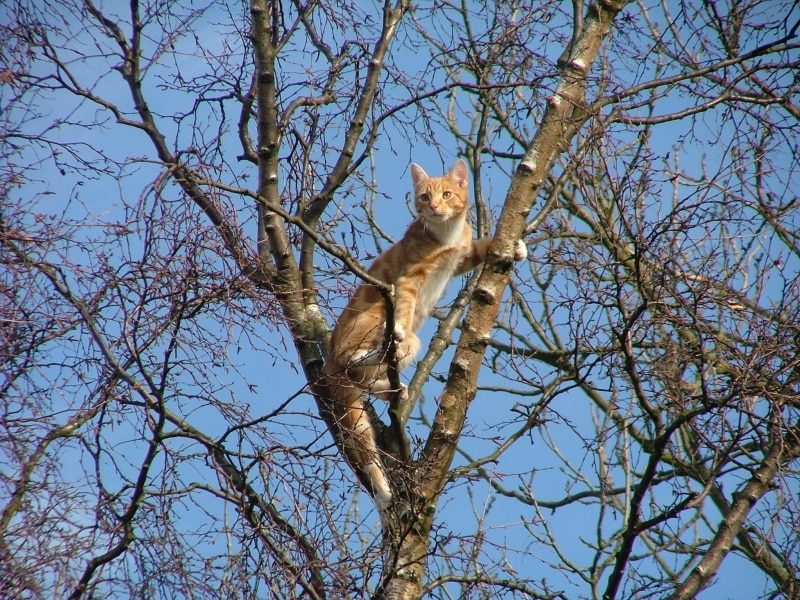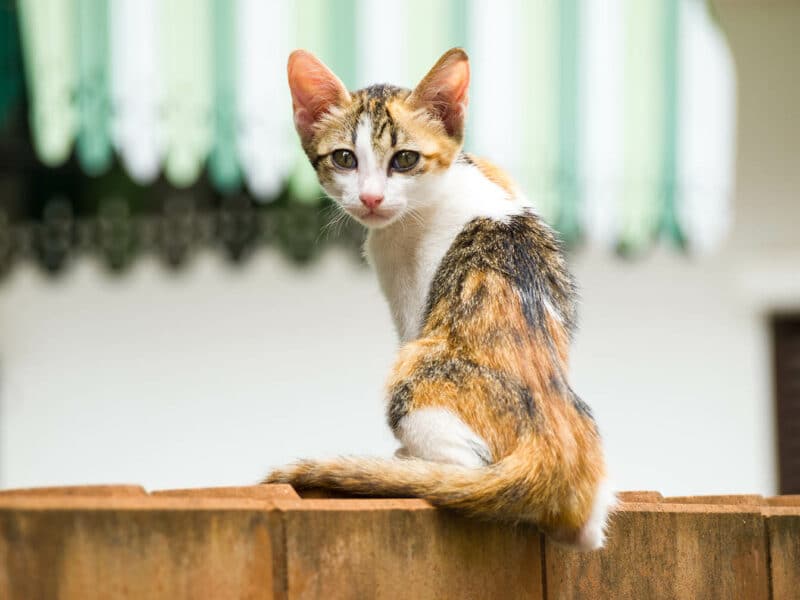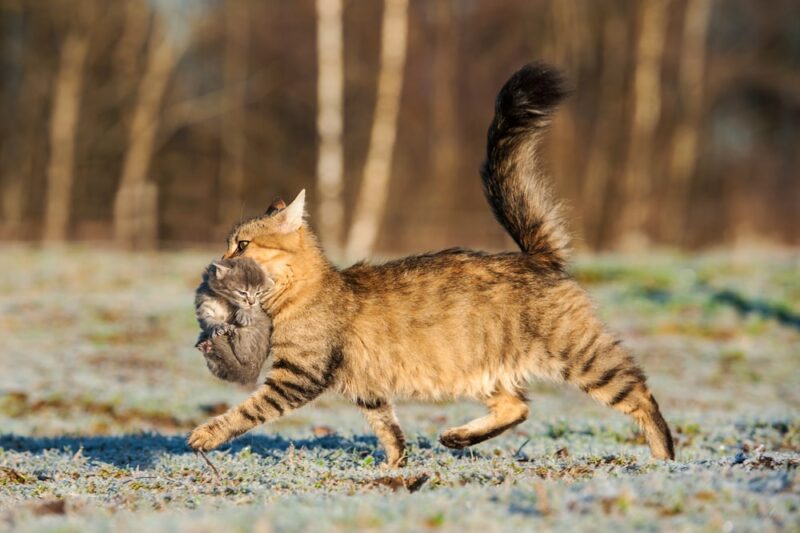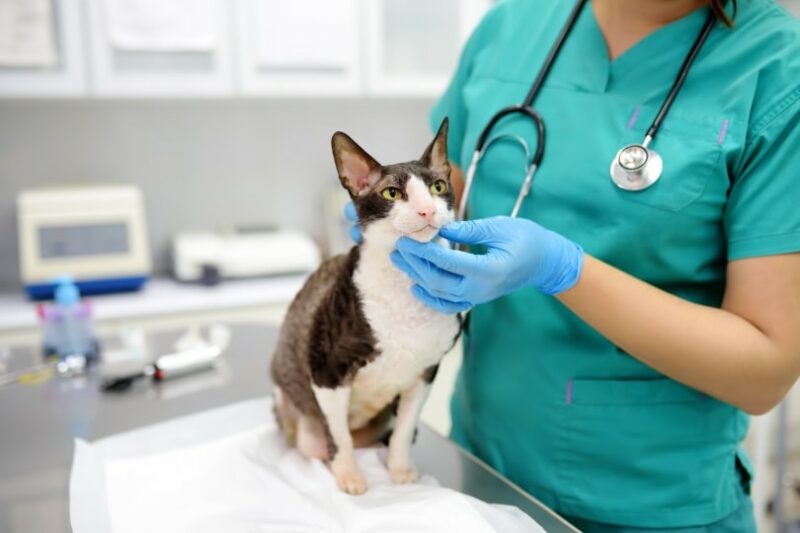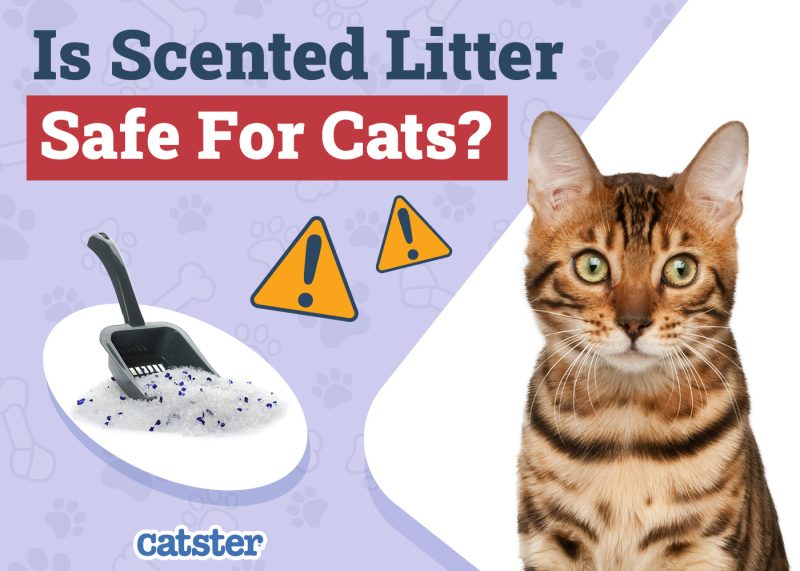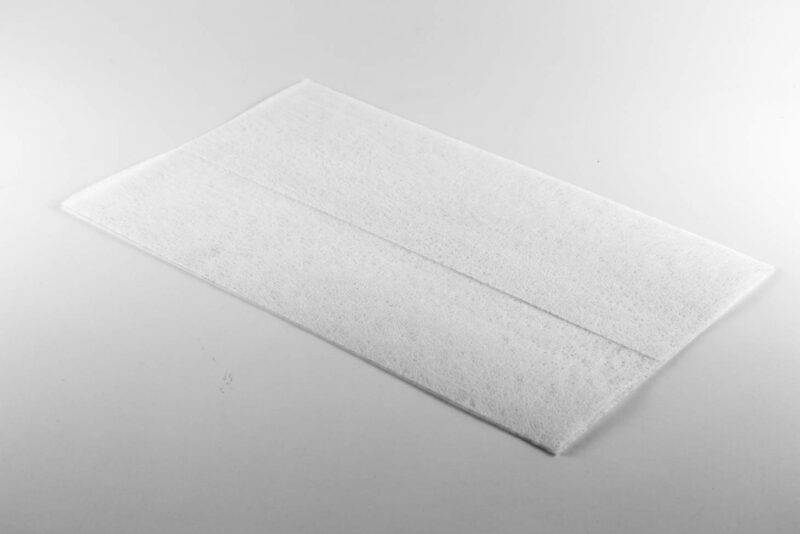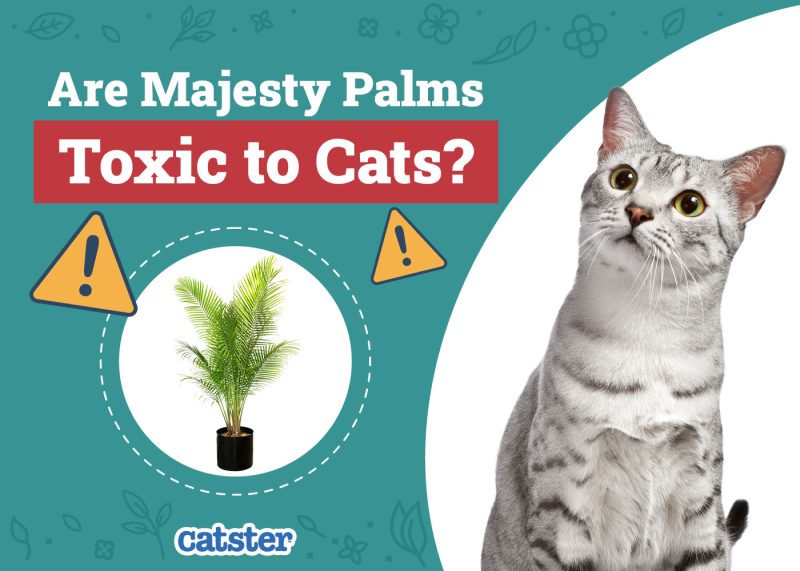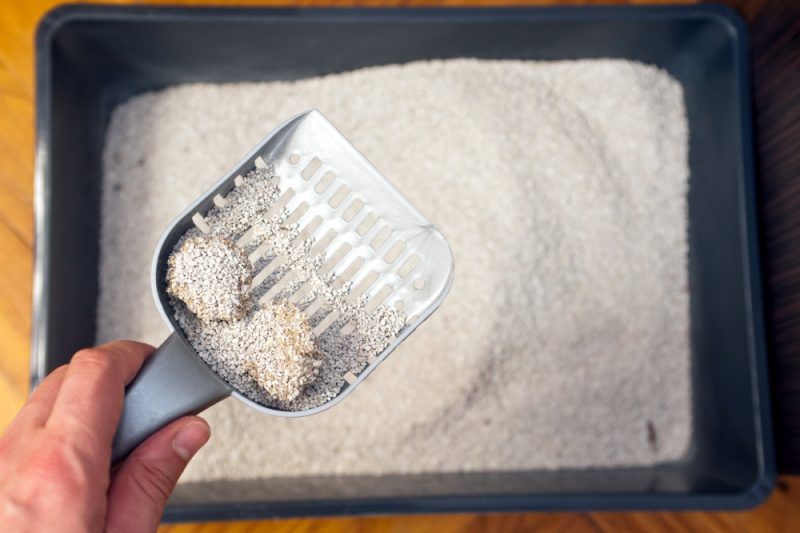In this article
Cats evolved to eat their placenta. It is normal behavior that most females will exhibit while giving birth. But that does not mean that all cats will eat every placenta. Both behaviors are normal and nothing to be worried about.
Cats are thought to eat their placentas as a protective mechanism. The scent of the placentas can bring predators to the cat’s birthing place. She may decide to eat the placenta to cover up the event and reduce the smell that could draw predators.

What Happens if My Cat Doesn’t Eat Her Placenta?
While many cats will eat their placentas, not all cats will. This is entirely normal as well. The cat may be otherwise distracted. This situation is prevalent with new moms, as their thoughts and attention will likely be elsewhere. They may be concentrating a little too much on the kittens to worry about eating the placenta.
Other cats may have too big of a litter to eat their placenta. After a few babies, she may be full and not eat them anymore. Sometimes, cats may not eat their placenta for no apparent reason.
Whatever the cause, there is no reason that your feline has to eat the placentas. At home, she will have many opportunities to eat out of her food bowl and doesn’t need any extra nutrition. There also are not any predators, so there is no need to reduce the birthing smell. The fact that domesticated mother cats do it speaks more to their feline instincts than anything else.
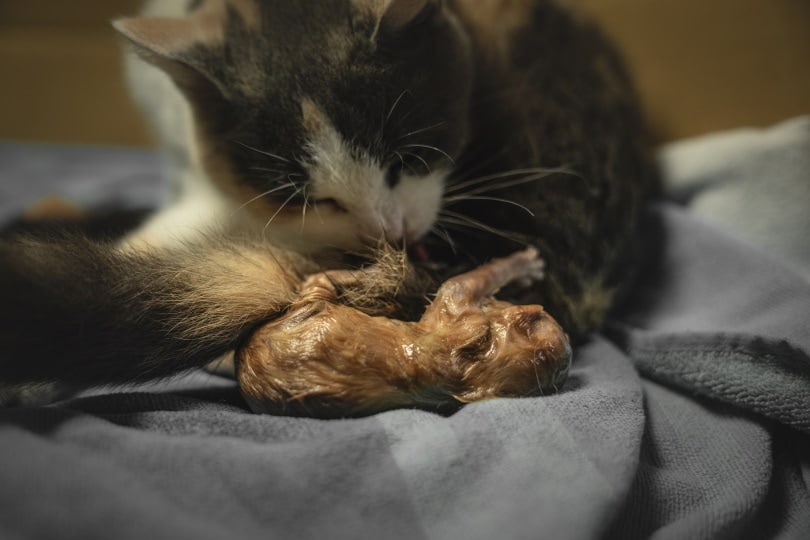
Once you have counted them, you can remove the placentas if your feline does not eat them right away. There is little reason to “leave them for later,” as they will quickly go bad, smell, and potentially cause diseases. You wouldn’t leave raw meat out, so you shouldn’t leave your cat’s placentas there either.
Generally, we recommend entirely changing your cat’s bedding as soon as possible after birth. You want to disturb the new family as little as possible, but you also don’t want to leave the blood and fluid in the box with them. This can cause significant problems with infection, smells, and bacteria.
Try to do this after the family has settled in and your cat doesn’t have any more kittens. You may want to wait until after everyone has rested for a bit.
Should You Let Your Cat Eat the Placenta?
Yes. If your cat decides to eat the placenta, you shouldn’t do anything to stop her. If the cat doesn’t eat the placenta, you shouldn’t force her either.
We recommend not interfering with a cat’s birth as much as possible. This means allowing her to decide whether she wants to eat the placenta or not. You should only intervene if she hasn’t produced a kitten in an hour with contractions if you can’t see a placenta, and she didn’t eat it or if something else seems to be wrong.
There is no reason to rush in in most cases, even if things aren’t going 100% great. For instance, if the cat doesn’t eat the placenta, there is no reason to remove it after only a few moments. There is also no reason to interfere with cutting the cord and helping clean the kittens quickly. Usually, mother cats are pretty good at taking care of their kittens.

Does a Mother Cat Eat the Umbilical Cord?
After giving birth to each kitten, the mother cat should bite through the umbilical cord. She isn’t “eating” it in the ordinary sense, though it may look like she is. Instead, she is detaching the kitten from the placenta.
In some cases, the mother cat may eat the placenta shortly after cutting the cord. Other times, she may stop and turn her attention elsewhere first.
Most mother cats are perfectly capable of chewing through the cord independently, and it is best to let them do it without interfering. Even if it takes her a few minutes, it is better to leave this process to them, unless it creates serious distress for the mom.
If it is evident that the mother cat isn’t doing it, you can tear it or cut it with a pair of scissors. Do this about an inch away from the baby kitten. Be sure not to cut until the cord is limp and the placenta is starting to cool down. It should no longer be “pumping.” Don’t worry about the long stump connected to the kitten, as it will fall off by itself after a few days.
The kitten can stay attached to the placenta for a long time after birth without any issues, so there is no reason to rush to do it. Sometimes, cats may birth their kittens too fast to be able to cut all the cords as they each come out. But she may return to previous kittens and do so after the birth has slowed down.
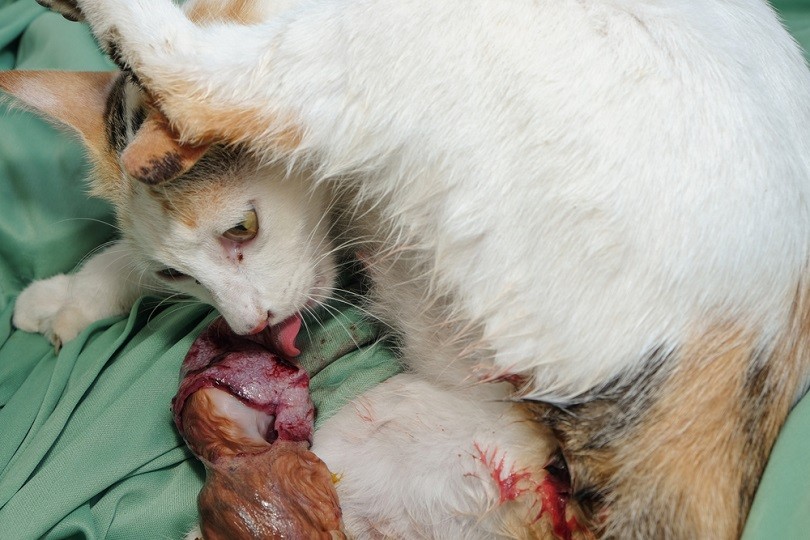
The primary reason you don’t want to leave the placenta attached indefinitely is that the risk of infection is increased. This only happens after the placenta starts to rot, however.
If you need to cut the umbilical cord, there is no reason to leave the placenta and cord for the cat to eat. Remove it after you detach it.
Around the time the mother cat cuts the umbilical cord, she will also remove the sac from around the kittens and lick them rigorously. This stimulates breathing and helps remove any remaining blood from the kitten’s fur. It is necessary for the kitten’s health.
However, some people get worried that the cat eats the placenta and then starts vigorously licking the kitten. Generally speaking, it is not true that mother cats will eat their own young, though, so there is no reason to remove the kitten—even if the cat seems to be licking it a bit rougher than you would.

Why Is My Cat So Hungry After Giving Birth?
Most cats are pretty hungry after giving birth. This is partially instinctual. The cat’s body knows that it now has to start producing milk for kittens, which means the mother needs to eat more calories. These hormones will kick in shortly after birth, so the mother cat will likely start to eat more.
Mother cats also instinctively eat their placentas. However, if other food is available, they may seem to compulsively eat that too. While you shouldn’t limit your nursing cat’s food intake, you probably shouldn’t have cat food in the birthing area.
A mother cat should be focused on her kittens during labor, not a bowl of cat food. Plus, you also don’t want blood and fluid to get into her food and potentially sit there for a bit. It is best to have the food in another area during the actual birth.
After the birth, you can move the food a few feet away from the nesting box. Don’t set it in the birthing box, as you don’t want the kittens to get into it. They probably won’t try to eat it, but you don’t want them to crawl and scatter cat food everywhere!
But, it is also typical for cats not to be hungry at all after birth. In this case, it is also completely fine not to force them to eat. If your cat doesn’t eat within 24 hours, you may want to call a vet.
If you need to speak with a vet but can't get to one, head over to PangoVet. It's an online service where you can talk to a vet online and get the advice you need for your pet — all at an affordable price!


Final Thoughts
Many cats eat their placentas. It is a way to keep predators away from the birthing area and from her kittens. Remember, cats evolved to give birth without our help, so they will often still act like they don’t have a human to clean up their birthing box for them.
At the same time, some cats may not eat their placentas at all. This is also perfectly normal. There is no reason to force a cat to eat a placenta or leave them there after birth. Once the new family is settling in, it is good to clean up the whole space, including the placentas. There is no reason cats have to eat them in captivity.
In the end, whatever your cat decides to do with the placenta is entirely normal and okay.
Related Reads:
- My Cat Keeps Walking Away From Her Kittens, Is It Normal? Vet-Approved Facts
- Weaning Kittens: How & When to Do It: Vet-Reviewed Guide
Featured Image Credit: Akhmad Sopiyan, Shutterstock
